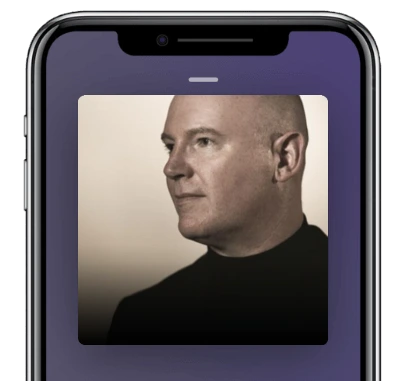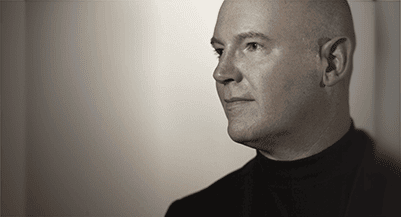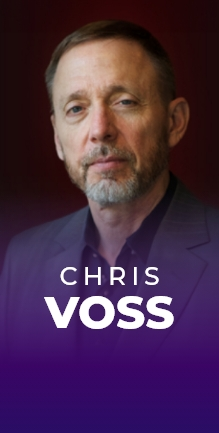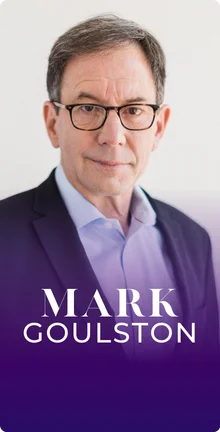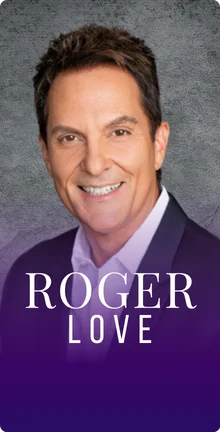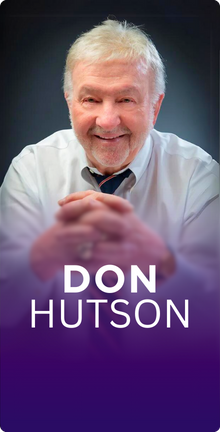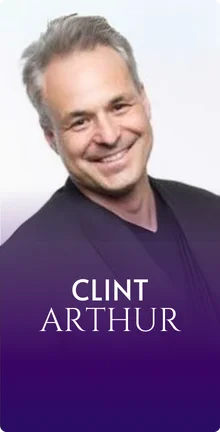Julian, it’s so great to have you on the show.
Thank you for having me. I’m delighted to be here.
First of all, I got to find out, how the heck did you get to 80 million views on your TED Talk?
Well, it’s five TED Talks.
That’s impressive by itself.
There’s also TEDx Talks. Altogether, there are 13 TED vehicles out there. The five TED Talks are all on ted.com and accumulated views of well over 50 million now on ted.com. Chris Anderson tells me you’ve got to double that number for an estimate of the number of views on the Internet because of people streaming the thing through their own web pages, blogs, and so forth, and YouTube as well. I reckon the estimate is probably over 100 million now, which is pretty daunting.
They built up over a period of five years. I did five successive talks at TED or TED Global, originally. I guess people have taken to them, especially the last one. The interesting thing to me is—because there was a flow-through them—I started talking about sound which is my passion and it’s my job. I run the Sound Agency. We do all the branding all around the world and work with some of the world’s biggest organizations, asking and answering the question, “How does your brand sound?” The topic for another day probably.
Then, I started talking about sound and health. Then, I started talking about listening because it occurred to me that the noise around us is not all just made by organizations. Organizations aren’t things, they are composed of people and it’s all of us not listening, which is the issue with the noise that’s being made, the lack of design sound around us. The fact that most of the sound around us is just accidental. It’s like the exhaust gas of what’s going on. I did a talk on listening skills, that’s the third one.
The fourth one was about designing with the ears because I really got exercised after that by the issue the architects always think about or usually think about how things look and ignore how things sound. We were coming across building after building that looked terrific and sounded unbearable.
The last one was about powerful speaking. That’s interesting, the one that went absolutely ballistic. That’s got, I don’t know, 30+ million views on its own on ted.com. I get number six of all time on TED. Interesting to me that it has got at least six times as many views as the talk about listening which says something. All of our priorities, we’re rather keynote to speak and be heard than we are to listen.
That really kicked off the whole thesis of the book and the course I’ve created, everything about my work on communication now because those things are related to each other intimately, consistently, and organically in our circle. Speaking and listening affect one another. If you want to be heard, then you better learn to listen as well. It’s very difficult to be a powerful and inspiring speaker if you aren’t good at listening, if you want to understand the people you’re talking to.
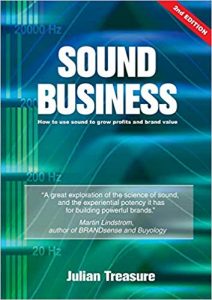
Isn’t there a quote, I think it’s from the bible, “Seek first to understand then to be understood,” or something like that?
There is and there’s also the age-old quote which comes from originally a Greek philosopher, which is about the fact we’ve got two ears and one mouth. That’s the correct waiting. Listening is such a forgotten skill, it’s so important for our outcomes in life. Never has the world needed listening as it does right now. You have to look around you, at the politics of hatred and polarization to see the degree to which we’re not listening to each other.
Anybody who cares about inspiring people, forming a team, getting people to work with you, getting your point across, make a difference in the world, listening is a great access to all of those things. The better you listen, the better you can speak, communicate, and get your point across.
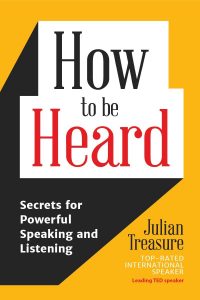
Right. I don’t know if criticized is the right word, but it’s been recommended to me as a podcast or that I speak more and let the guest speak a little less because minutes of minutes go by and I haven’t said a word, I’ve just been listening to the guest. I personally like that approach because I’m just wrapped, I’m just really into the conversation, enjoying what I’m hearing, and I don’t need to chime in all the time. What are your thoughts on that?
I think it’s a great skill. If you’re running a podcast, which involves interviewing people than the people are the thing that’s interesting, by all means, you’re moderating, you’re facilitating, you’re guiding, you’re tweaking it. If you’ve got a theme to the podcast, you need to keep it on message and not have people wonder off the piece and go crazy. Nevertheless, I think listening is really powerful.
As a podcast host, I think it’s the most powerful thing you can do. Otherwise, you’ll be saying the same thing every single episode, wouldn’t you? You’re you, you’re the immutable, the foundation, the rock, and the transmission medium. What’s interesting is what’s being transmitted through you. That would certainly be my approach so I agree with you very much.
I see myself as a curator and as a listener, in this medium at least, not as much of a speaker. I have thought about doing more solo episodes but I decided the interview format is way more interesting to me, and hopefully, to my listeners.
Well, that would be a different approach. You could interview yourself perhaps; that would be fun to do. In my view at the moment, this format is being unfortunately abused in the media, a great deal, particularly in terms of radio because of the attack of journalism and people getting interrupted 20 seconds into everything.
This is why we end up with sound by politics because politicians don’t have time to make up a decent point now. They’re getting interrupted and argued with. I’m not saying the politicians are not to blame because they’re in the dance of death with the media here. It’s getting shorter and shorter to the point where it’s impossible for anybody to make an intelligent point and has to be a headline in every sentence.
We’re dumbing down the whole process, which is symptomatic again of not listening. I don’t think your podcast would work half as well if you were running over everything the guest said, interjecting, being argumentative, and putting a pause across a thesis the whole time without giving people a chance to express themselves. It’s a rare and beautiful thing, actually, to have discourse like this where two people are actually talking with time, paying attention to each other, and respectfully listening. It’s a wonderful thing.
Sound affects us physiologically, psychologically, cognitively, and behaviorally all the time. The sound around us is affecting us even though we're not conscious of it. Share on XAre you familiar with the term bully pulpit? I was thinking of that as you were talking about politics.
I haven’t heard that one. It must be from the USA.
Well, it’s certainly used here in the USA. It’s not as common these days as it was years past. According to Google search, it’s a public office or position of authority that provides its occupant with an outstanding opportunity to speak out on any issue. As an example, he could use the presidency as a bully pulpit to bring out the best in civic life.
I’ll just interject here that this is intended for Google results. This oftentimes has a negative connotation and it’s used to push a message. That term came from Theodore Roosevelt. I’m not really up on the history of it, but it doesn’t seem like it’s as positive nowadays of a term as it used to be. Anyway, I’m just curious if you’re familiar with that term.
No, but I’m very familiar with people who are being bombastic, rigid, and confusing opinion with fact and the whole thing with dogma is one of The Seven Deadly Sins of Speaking that I talked about in that TED Talk about speaking.
Also, I think, a very common for the lower levels of spiral dynamics. I’m not sure if you’re familiar with that, but I can recall level four and spiral dynamics is blue. Folks who are blue are very rigid, dogmatic, and they tend to gravitate towards rigid, dogmatic systems like certain religions and so forth. Are you familiar with that spiral dynamics system?
It doesn’t ring a bell with me but I may have come across some of the things in the past. Certainly, there are a lot of ways of classifying people’s listening and speaking personalities, which are quite interesting. One of the essential thesis of the book is that each human being listening is unique. That’s not something that most people consider. It’s a very common mistake to assume everybody listens like I do and that is not the truth.

We all listen through a set of filters. Those filters accumulate through our life, the culture we’re born into, whether you’re talking about nationality, locality, family, or the tribes you joined as you grow up, the culture that you grow up with, the language you speak as a matter of fact. Your listening, values, attitudes, and beliefs, things you gather along the way from your parents, your teachers, role models, friends, whoever it might be.
In any situation, you might have intentions or expectations which probably you’re listening to it, you might have emotions going on, which can certainly affect our listening. Assumptions about how people think and what people think of me and so forth. All of these things color our listening. They’re filters through which we listen. They’re different from each person to the next because we all come from a different road. You never would have listened to this right now has come to a different road to this place at this moment and are listening in a different way.
Also, it changes over time, so each of us has a listening that changes through the day, depending on what we’ve eaten and how tired we are, how angry, upset, happy, or whatever. It is absolutely crucial if you want to be understood to ask a simple and very powerful question, “What’s the listening I’m speaking into?” Whether it’s one-to-one or you’re standing on a stage in front of a thousand people. There’s a listening you’re speaking into.
If you simply start asking yourself that question, it is so powerful. You will start to become sensitive to it. You don’t need to take a degree in this. It’s not complex. I don’t know how it works. It might be body language, micro-expressions, all sorts of different things probably but simply asking the question, “What’s the listening I’m speaking into?” It sensitizes you to it and you’re asking yourself to be alert. This is an angry listening, an upset, aggressive, hostile or is it positive, friendly, warm, receiving, amused, dismissive, whatever it might be. That needs to color the way that you deliver.
I’m often put on after lunch in the graveyard slot. They think he knows how to speak so he can handle that. That’s the time when everybody’s gut is taking the blood from their brain, we’re a little bit tired. That is a listening that I’m very familiar with and it means I have to up my game a bit. I need to engage the audience. I need to…
Increase the energy in the room?
If you're listening consciously, you can take control of the sound around you. It's good for your health and for your productivity. If we all do that, we move to a state that I like to think will be sound living in the world. Share on XExactly. Energy, asking people questions so they’re not going to sleep and think it’s safe to have a little snooze now. Keeping them a little bit more on their toes and really using dynamic sounds and things like that to keep people interested and excited. Asking that question is so powerful.
I think that on the other side, from the listener’s perspective, it would be also powerful for them to ask a question of themselves. Something like, “Am I aware of my own listening filters right now?” As you said, everybody’s listening is unique and it also changes throughout the day and through the environment.
If we are more aware as listeners of how we’re taking in information and what sort of biases we’re applying to the information, that would make us much better listeners, as well as what you’re describing here with a powerful question of, what’s the listening I’m speaking into, make you a much better speaker and communicator.
Definitely. Listening is a skill and that’s not something people generally consider. It’s often confused with hearing, which is a capability. You hear everything if you’ve got a perfect hearing. We just hear what’s going on around us that goes in. Listening got two elements in it.
First of all, you select certain things to pay attention to, out of everything that you hear and we all select different things potentially. Secondly, you make that mean something. My definition of listening actually is making meaning from the sound we interpret, what we’re listening to.
With many people, listening has left as a sort of passive activity and we don’t teach this in schools, do we? We teach reading and writing. It’s a scandal if a child leaves school unable to read or write. We don’t teach speaking hardly, it’s all we teach, speaking and not at all do we teach listening in general.
These two crucial skills, the amazing instruments that is your voice and the incredible instruments that are your ears are left to be picked up just within there, as you go along. There’s no instruction manual given, there’s no teaching given. I think that’s a tragedy because listening is such an important skill.
You’re right. The access to becoming better at listening is, first, to become conscious that you’re doing something. You’re doing something, it’s not by caring. Hearing inside your heart beating or breathing, it happens.

Listening is an activity. It’s a skill that you’re practicing, some well, some not so well. The moment that you become conscious that you’re doing something, you can start to challenge how well you’re doing it, which way you’re doing it because there are many ways to listen. Listening as you’re typing, “Yeah, I am listening to you.” No, you’re sending a text. That’s not actually listening.
Or listening while you’re trying to think of something to say in response because you’ve got to put your 2¢ in.
Absolutely. I call that one speech writing, which is while listening, a convenient noise is going on in front of me. I’m thinking about my next brilliant bit of dialogue or monologue. That doesn’t really work very well. It tends to give rise to the, “Anyway,” non sequitur, just brushing aside what that person was saying because I got something more important to say, that’s got nothing to do with that. That’s the meaning. It tends to upset people if you do that to them.
The best way to be heard or as I say as to listen. Anybody who’s shy or bashful about speaking, the best access to being heard in a conversation, is to start asking questions. One of the best ones is, “Really? Tell me more. Tell me more about that.” People love speaking about themselves and deploying that question in any conversation is going to draw them out and then you get respect for listening generated in this space between you and it’s easier for you to speak into it.
There’s got to be a sense of authenticity that’s communicated with that, too. It can be mechanical if you’re using an approach that you learned from a communication class where really, tell me more about that. For example, I learned all about that from Harville Hendrix and his Imago Couple’s Dialog. That’s very powerful and you can do it in a way that you are genuinely, authentically curious to know more about that even if it’s tough to hear or you could do it in a way that’s very wrote and robotic.
Definitely. It’s very similar to the active listening which is repeating back what you just heard which, again, is a big part of Imago. It’s a very good system, the Imago System, but when you’re saying, “What I heard you say is,” that’s used in a lot of therapeutic professions, in teaching, anywhere you want somebody to feel heard, you can do that.
You can repeat exactly what they said without coloring it, distorting it, or manipulating it, but you wouldn’t have many friends if that’s the way you spoke all the time. “What I heard you say is,” it’s not very exciting. It can achieve an objective, and it’s very good in conflict particularly. You can really reduce the temperature of the conversation simply by making sure, “I hear that you’re very angry with me. I hear that I did this and it really upsets you.” People will get less cross the more they’re heard. Listening and upset tend to be inversely related.
In conflict, it’s important to use the same language when you’re mirroring back to get confirmation that’s right, you’re on the right track in terms of trying to understand what the person is communicating in that conflict. Whereas, it’s more boring and not engaging to do that if there isn’t a conflict, if you’re trying to just communicate normally with somebody.
Absolutely. You know, you’re right about authenticity. There are four foundations to powerful speaking but they also apply to listening, which I talked about in that TED Talk on speaking. They spell it with HAIL and they stand for honesty, authenticity, integrity, and love. Authenticity is extremely important.
You are not pretending, you’re not being somebody else, you’re not using somebody else’s words, you’re actually being yourself. “Tell me more,” is an access to that. If you want to manipulate that in different ways, you got a way of saying, “Oh really. I’d like him or that.” There are many natural ways that can come out. Simply asking somebody to expand on what they said is a positive way to engage particularly for shy people or people who do not feel heard. I found this in the past with people I’ve worked with.
Honesty comes from being clear and straight, just not confusing people. Not using jargon, not trying to impress people. You’re trying to impress the life out of people with big words or complex ideas.
Integrity comes from being your word. That is to say, if I say it, I’d do it or if I say it, it happens, I follow through because if you’re somebody who, whenever you say something, nothing happens. People start to learn that your words evaporate like bubbles in the sun, they have no power at all.
It’s okay to be a person who does what they say they’re going to do?
Yeah, that’s integrity. That’s one definition. The L, love—I’m not talking about romantic love here, it’s not the imago love we’re talking about here—is very much well-wishing, simply wishing people well and wanting the best for them, which is great access if you’re a stage speaker, for example, or you have to present to people.
It’s very important to remember it’s not about you, it’s not about impressing people, getting kudos, or getting love, adored, or respected. If that’s your motivation, that’s all about looking good, which is not a great place to come from if you’re speaking to people.
Much more powerful is to be genuinely there, giving a gift, thinking, “How can I help these people? What can I give them that’s going to solve their problems, enter their life, impress them when they leave here because something has changed?” It’s very much the kind of thing that TED always looks at when they’re looking for speakers. It’s something that’s going to change your perspective, your frame of reference, your entire way of looking at the world, that’s what they look for every time in a great TED Talks.
If you can think about it, it’s a gift. “What gift can I give?” We all got gifts to give. Some of us are very modest about it. We all have something to give. That is a terrific place to come from, that’s well-wishing.
There’s a great access to that, by the way, great exercises somebody taught me years ago, which is to think in your mind, as you walk about in the city or wherever it may be, instead of going, “Get out of my way you idiot,” in your head, which we do in an awful lot. There’s a lot of thinking unpleasant things about people, critical things, whatever it may be.
A great thing to do is to start thinking, “Just bless you.” I’m not talking religiously here. I just mean, “I wish you well.” If that becomes a habit, it is amazing how you float about feeling much happier. You might even meet people’s eyes and have a little smile. Who knows? You’re much more open. Whereas you’re thinking horrible things about people, you tend not to meet their eye, you tend to look away, and looking grumpy. The world is a less pleasant place to be in. Those are really nice, simple exercises to do which gives you access to this well-wishing which I think is tremendously powerful in communication.
I love that and I do something like that. I haven’t always done it, but in recent times, in the last couple of years, I’ve been seeing people who look kind of desperate and bad straights, homeless people for example, and I pray for them as I walk past or as I’m driving by. I believe that makes a difference for them.
Listening is something that we have to work at - it's a relationship with sound. And yet, it's a skill that none of us are taught. Share on XThere’s lots of research about prayer whether you’re religious or not, plenty of research showing that prayer is good for us just in the same way meditation is good for us. I’m absolutely certain that intentional well-wishing going around that way is good for us because it’s going to create good body chemistry, it won’t be cortisol, nor adrenaline, and the stress hormones that we go around with a great deal when we’re angry, “You idiot, you got in my way,” an all that kind of stuff. It’s much more going to be positive brain chemistry that floods through, endorphins, and so forth. The things that make us feel good and happy. That’s a ripple effect.
I actually learned an interesting bit of research from my friend, Amy Africa, that if you yell at or get cross with your Amazon Echo or Google Home Device, if you’re impolite or mean to this inanimate object, it actually changes your brain chemistry. It does damage to your brain. It makes sense now that I know this, but I think it’s really important for people to realize they’re actually hurting themselves if they’re smarting off in an impolite, disrespectful way to that inanimate object that’s always listening for our wake word.
I think there are a couple of habits that we have in communication which are very destructive. We’ve already talked about one of them actually, which is looking good, which tends to give rise to all that kind of speech writing, pretending to listen and wanting to be loved, all that kind of stuff.
Looking good and not looking bad, I would add that other equation too.
Yeah, which is most people’s fear of public speaking after all. Just a tip on that, I’ve seen this happen loads of times. The biggest fear about public speaking tends to be going on and forgetting, they’re getting stuck, looking like an idiot because you forget what you’re supposed to be saying. I’ve seen that happen lots of times.
The truth is, you can be quiet for the longest time on stage and people are perfectly happy to stay with you as long as you stay in the zone, and look like you know what you’re doing. I demonstrate this on stage, a lot. I go quiet for 30 seconds, 45 seconds, everybody just sits there and they don’t feel disturbed; it’s all fine. If that were me trying to remember what I was going to say next, I’d give myself plenty of space.
Even if you do, if you’re trying to remember your talk and you forget it, it’s fine to say, “Ladies and gentlemen, this has never happened to me before. I’ve just completely forgotten what I was going to say next. Please would you bear with me? I’m so embarrassed.” That sharing, that is suddenly connecting with the audience, being honest about what’s going on. Back to honesty. Authentic about how you feel. Having integrity to go and to say, “I need to go and check my notes. I’ll be off stage for a moment, I’m coming back.”
All of that, what you get back is appreciation. Almost every time I’ve seen somebody do that up on stage, what happens immediately? The audience starts clapping to encourage them. This is not open mic night and stand-up comedy. It’s not brutal like that. That fear is very exaggerated in most people.
The power of the pause is very impactful if you use it deliberately with intention. Even if you just freeze and the pause is because of something a little less intentional like you forgot your lines, you can just be real with your audience and they’ll often, if not always, forgive you for it. Give you that leeway.
That’s absolutely right. That’s all in the domain of looking good, which is a big concern for many people. The bad habit that can dominate and that’s even more powerful than looking good is a motivation from many people, that’s being right. We love to be right. Actually, it was Harville Hendrix who said you can neither be right or be in a relationship. It’s a beautiful quote. You said you can’t curl with being right at the end of the day.
By the way, I have to mention to my listener here that the Harville Hendrix episode where I interviewed Harville and his amazing wife, Helen LaKelly Hunt, is an episode on this show you must listen to. It’s so powerful. Even if you’re not in a relationship and you want to be in one or if you have kids, parents, or siblings. It’s so powerful.
I have a lot of time for their whole system, I think it’s absolutely excellent and very loving as well.
Being right gives rise to an awful lot of miscommunication and relationship issues. Being right gives rise to the kind of I-know professional, unimpressible which is a very hard surface to encounter with anybody when you can’t. They just won’t be impressed, they have to know everything. If you know everything, what are you going to learn? Nothing. It’s a very rigid place to be.
There’s this confusion as I mentioned earlier between opinions and facts. They’re different things. I grew up in a house where opinions and facts were often confused. It leads to a lot of table-thumping and shouting because opinions are just opinions. There are a lot more opinions out there than there are facts particularly, unfortunately, in political discourse these days.
I will have to jump in here and say that it’s one of the criteria I look for when I’m evaluating a potential client to work with them. I do SEO consulting. If they seem to have a fixed mindset, they seem to treat their opinions as if their fact, always be right, I don’t want to work with them.
Absolutely. The easiest way of being right is to make somebody else wrong. That’s the easiest access to it, which is the reason for our cultural addiction to outrage. In the media, you see it all the time. Who’s to blame? Somebody is to blame. That’s disgraceful. Who’s to blame for this? Let’s find out the guilty party. The moment I am like that about somebody on making myself right and it makes me elevated and it makes them lower. I feel better about myself. I’m right, they’re wrong. That, unfortunately, is driving a huge amount of politics.
I did a TEDx Talk a few years ago in the houses of parliament in the UK and then also in Athens, the cradle of democracy, where I was basically arguing that the sound of democracy is listening because if we’re not listening, we don’t understand and that is the access to civilized society to living in civil disagreement. “I live next to you, I fundamentally disagree with your views. You’re the majority and I have to live in this place anyway.”
If we stop listening, we’re on a slippery slope to caricature and demonization and all the things we’re starting to see a great deal. At the end of that slope is the ISIS view of the world which is, “If I disagree with you, I’ll kill you.” That’s not a world I want to live in. I think, never have we need it listening more.
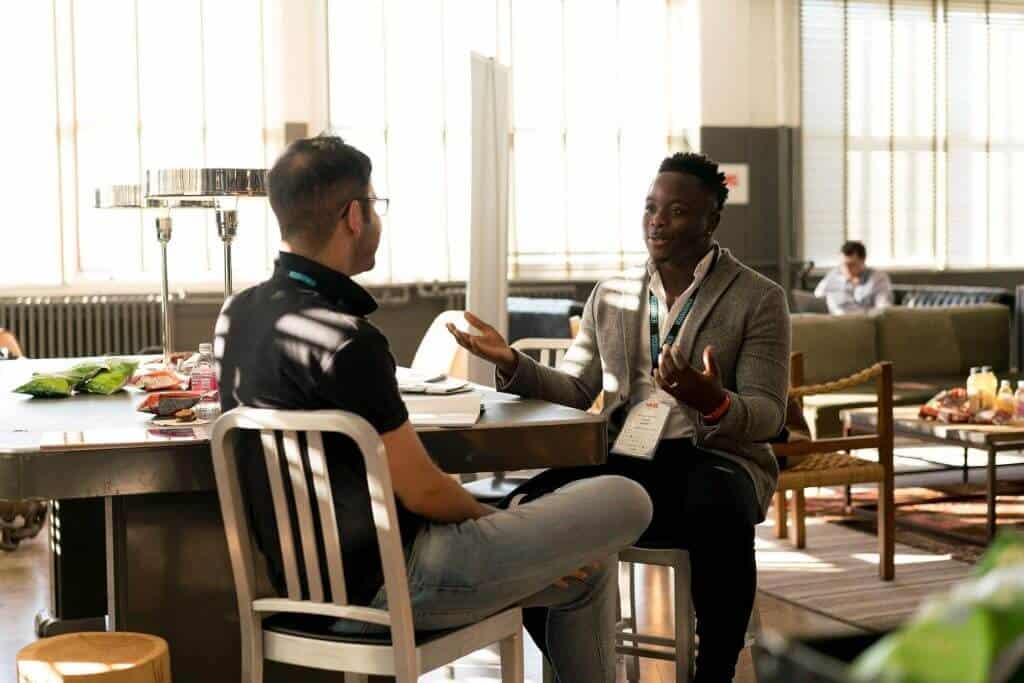
Politicians go off and have a talk. I wished they would go off and listen, instead. I think it would be a much more productive way for us to behave. That is a dangerous development, it’s a dangerous slope. I think we all need to fight for much more listening in our own relationships.
What’s the biggest complaint in the relationship? He or she never listens to me. It’s gold dust. I think there are billions of people on this planet, billions who’ve never had the experience of being truly listened to. Scott Peck, who’s another author I really rate, said, “It is impossible to truly listen to another human being and do anything else at the same time.” That is so true and yet, we do it all the time, don’t we? We’re doing the cooking, we’re doing something else. We’re watching tv, we’re listening to something, we’re reading a book on our computers, on our phones. That’s not actually listening.
A little request to everybody listening to this. After you have finished listening to this podcast, if you’re at home or when you go home, make a point of giving somebody in your family a great gift which is to truly listen to them. Put everything else down, do nothing else, look at them, pay attention with your eyes, pointing at them with your whole body, and listen to them without interrupting. You’ll probably get a reaction like, “What are you doing?” Because they haven’t had that experience for a long time. It’s a rare thing that we give anybody that amazing gift of 100% concentration and focus.
It’s a full meditation because it requires emptying your head, not planning your next piece of witty banter. It is about just trusting that your mouth will come out with the right thing when the time is appropriate and simply listening and absorbing what’s being said.
I need to do more of that and one thing that I’ve done to remind me to be more like that is one of these MyIntent bracelets. You can have a word emboss into this bracelet and that will remind you to be more of that. My bracelet says presence.
Wonderful. It is all about being conscious and present at this moment. It’s very much wrapped up with mindfulness, awareness, consciousness, and being here now. If you’re in the future, worrying about the future or you’re in the past, being regretful about the past, it’s very difficult to be listening. Listening is a great way of grounding yourself in the present moment, really losing yourself in listening, diving right into it. It’s always going to create presence.
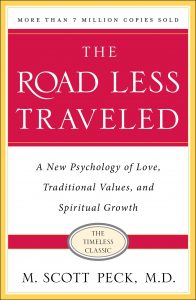
You mentioned that Scott Peck is an author you really rate. Is your favorite book by him, I’m guessing The Road Less Traveled or is there another one that you like even more?
Yes. The Road Less Travelled is definitely my favorite. I think The Different Drum is a very good book about community and how they get forged which Scott talks about listening in it. I think he’s got a lot to say about living in a more productive and loving way.
Yeah, great book. It was many years ago that I read it. He’s passed away but an incredible book. Another author that I just thought of, all this discussion about being right, looking good, and all that, I just love this book. It’s been a very powerful book for business for me. It’s by Chris Voss. It’s called Never Split the Difference.
One negotiation tactic or not even a tactic, it’s just an awareness that is so important is to understand when somebody says you’re right, you’re not winning. You’re not on the path to successful negotiation. “You’re right,” is basically an anyway statement. It’s dismissive. Whereas, “That’s right,” is the magical phrase that lets you know you’re on the path to success like a mutual win-win. I found that very insightful.
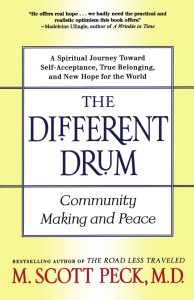
Well, there’s a hint of confrontation in “You’re right,” isn’t there? That means I’m wrong or there’s a tension there whereas, “That’s right,” is something on the table in front of us which we can both agree on. Just as it’s a much better idea to sit at right angles, to somebody when you’re having a serious conversation like that instead of face to face. In the same way, it’s great to put things on the table in front of the line of objectives, listen.
Any salesperson will say to you, a good salesperson, if you say, “What’s the most important part of the sales conversation?” They’ll say, it’s listening. It’s not speaking because if you don’t understand what somebody needs, what they want, what their problems are, you’re probably going to sell them the wrong things and get nowhere.
There’s another author that I also rate very highly who I count as a friend. Mark Goulston, and he wrote the book, Just Listen. I’m curious if you’ve come across that book, read it, or if you have any thoughts about Mark?
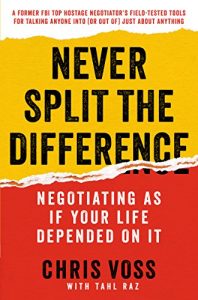
I haven’t and that’s very interesting to me. I’m going to, after this, go straight and get a copy of it and have a read of it because it sounds like the kind of thing I’m going to enjoy.
I think you will. He’s great. He’s also the author of PTSD for Dummies, a whole bunch of other books. He’s fabulous.
Another thing I wanted to get your take on this concept or this phrase of supposed wisdom called, “fake it until you make it.” I personally hate it. Personally, it doesn’t resonate for me and I think it’s inauthentic. But a slight variation on that expression or adage, “Act as if.” I found to be very powerful and it helps me step into my greatness, step into who I want to become but not in an inauthentic way. Curious what your thoughts are on that.
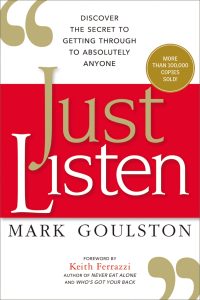
Yes, I do believe very strongly in authenticity, so faking something isn’t a great way to put it. I’m a big fan of practice. There are all those adages that it takes 10,000 hours to become an expert at anything and all that stuff. Practice is definitely a very good thing. In the course, I’ve got a lot of exercises that people can practice daily not all at once. One at a time, you got to change behaviors. It’s like changing the way you walk, the way you hold yourself, the way you breathe, whatever it might be, the way you think. These things take time because there are lots of learned habits. Whatever we’re doing, practice is very good.
I guess it’s not faking it, is it? Practice to make it would be a much more positive way of putting that. Having said that, acting as if that’s very much in tune with something I trained people and I talk about in the books which is a particular kind of listening in a listening. You’ve got outer listening which is we’ve been talking about, listening to sound around us and we all need to get better at that.
There’s inner listening as well and that is listening to the little voice in your head, the one that everybody listening to this just heard say, “What little voice is he talking about?” That little voice which is always there and it’s an editor, a critic, and so forth. It plays a lot of roles. For many people, that vice is not very positive in their lives. It’s quite critical, it’s quite negative, and it’s a stopper. It stops people from doing things.
Many people refer to it as the inner critic.
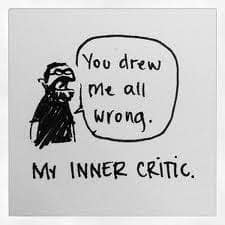 Exactly the inner critic. There’s a great cartoon I love which is a guy drawing his inner critic. It’s saying, “You drew me all wrong.” There’s no end to that stuff. The inner critic can be very destructive in people’s lives. Now, there’s a great realization that I do urge everybody who has a problem with their inner critic to try on and that is that voice is not you. You are not the voice.
Exactly the inner critic. There’s a great cartoon I love which is a guy drawing his inner critic. It’s saying, “You drew me all wrong.” There’s no end to that stuff. The inner critic can be very destructive in people’s lives. Now, there’s a great realization that I do urge everybody who has a problem with their inner critic to try on and that is that voice is not you. You are not the voice.
If you’re not the voice, who are you? You’re the one listening to the voice. That puts you in a completely different position. That means that the voice is something you can tousle the head off and say, “Thank you for sharing. Be on your way, I’m going to go on the dance floor anyway.”
The voice might be a fragment of your personality. It probably comes from pain in the past, it’s probably trying to help you. You can certainly ask those classic questions, “Is it true? What you’re saying to me in my head. Is it helpful? Is it kind?” Those are three great questions to ask that voice. If you don’t find it’s true, helpful, and kind, then you’re like a king on the throne with the majestic coming up to you and you can boot the voice out and say, “Okay, I’m not listening to you. Thank you very much.” As soon as you realize the voice is not you, you’re the one listening, you’re in a different position and the power of the thing is greatly diminished.
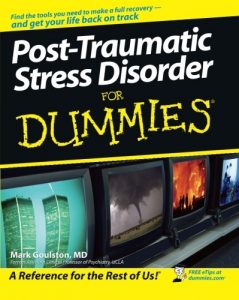
Wow, that’s a game-changer right there. It actually reminds me of something similar which on the positive flipside of listening to your inner voice is when it says something really insightful, profound, kind, or loving. It’s like a whisper from the universe that, “Hey, do this thing. Step into this thing.”
You can do this. If it’s helpful, kind, and loving, then absolutely brilliant, listen to it. When it’s an experience 25 years ago that really shook you up or scarred you for a long time and that comes back to haunt you, it’s not necessarily relevant now. The future is open. We can do anything with the future. It’s what we want to do with it. Don’t put the past in the future. Very often, that voice is rekindling past stuff and putting it in front of you. You don’t need that. It’s different if you’re the listener.
I got to share this new age woo woo thing because I think it’s pertinent here. I had an Akashic records reading. I’ve had several and they’ve all been profound and amazing. If you don’t know what Akashic records are, listeners, definitely Google it. The idea of Akashic records is that every thought, word, deed, everything that you’ve ever done, experienced, felt, every activity, everything is recorded. If you’re spiritual or not, take what you want from this and leave the rest.
One of the insights I got from this one reading was to listen to what my inner voice is saying if I’m trying to channel essentially something or if you feel like I’m connected to the source. I’m connected to the creator and I’m just going to channel and download some wisdom from the creator, then I can check if it’s really the creator of the universe, the divine, or if it’s just me, my ego, by asking a follow-up question after listening to my inner voice. Is this you God? Is this you, universe? Creator? Whatever term you use for higher power and then you’ll get the right answer. I love that. People I tell that to, they’re like, “Wow, that is profound. That’s powerful, I’m going to use that.”
That’s a great question as well. Being the listener and having a relationship with the voice as opposed to confusing the voice with some power over you. Listening is the heart of just about every spiritual tradition except for being invented, meditation, or quack contemplation. Very often, the voice of the divine speaks very quietly and we won’t hear it if we’re surrounding ourselves with devices, noise, constant stimulation, multiple streams, and fast living.
Or narcissism.
Or narcissism indeed. We are, to some degree, addicted to intensity now. It grieves me to see people consuming multiple devices at the same time because that is cumulative and it is addictive. It means that people lose their relationship with silence which is one of the biggest exercises that I talked about in the talk about conscious listening. Conscious listening is aided by having a good relationship with silence which is the most important sound of all.
It’s the sound that makes all of the sound makes sense, the gaps between the worlds, how you understand, or between notes and music. It’s the baseline for sound and it recalibrates your ears to have just a few minutes of silence every day. It’s a very good exercise. I recommend to everybody if you want to retain your sanity, ground yourself, and recalibrate and refresh your ability to listen.
Are you still there? It sounds like I might have lost you.
No, I was leaving a bit of silence there, which was fun.
That’s funny, you got me.
In a conversation like this, in radio or podcast, that’s called dead air and it does challenge people because they think as you did. “Where’s he gone? I lost the signal.”
Seek first to understand, then to be understood. Share on XIt does happen. That’s why I ask. Very profound, I want to keep this in actually because we tend to think of dead air or silence that needs to be filled but we need contrast. We need the rain to appreciate the sunshine. We need the darkness to appreciate the goodness, all the love, beauty, and everything.
Definitely. It’s the biggest single tip. That’s how I get people in public speaking skills, it’s exactly that, contrast where you can contrast all of the things in what I call the vocal toolbox which I train people and it’s a big chunk of the course in the book. It’s the whole thing about this incredible instrument we have in our throat, this pace, this prodigy, this silence, this volume, this pitch. There are all sorts of things that you can play with which allow you to create variation and opposite to that, of course, is speaking in a completely monotone like this in the same cadence all the time which is extremely uninteresting. That’s where we get the word monotony from monotone, one tone.
Anybody who’s got repetitive cadences, the best thing to do is to record yourself and listen out for those repetitive cadences because if I speak like this every time, whatever I’m saying, it’s going to get rather tedious to people. Eventually, I’ll get them into a trance and they’ll go to sleep, it doesn’t take long actually. If you continue with a repetitive cadence like that. It’s very important to vary in phase, in volume, and keep people on their toes because they won’t know what’s coming next. It’s lively, it’s stimulating, not artificially, authentically, but passionately being able to vary what you say.
As you say, then we have the mountains which create the valleys and we have life, difference, tension, there’s movement. After all, this is all about vibration. Everything in the universe is vibrating. Lack of vibration is death, stillness is death. Every part of us is vibrating so it’s not surprising that the voice is such a powerful thing and we need to learn how to use it effectively. It’s another skill to learn.
If you buy into the physics of the universe, that string theory is a thing and everything that exists is vibrating.
From the very smallest, absolutely from the strings or even superstrings, the huge ones, right up through molecules vibrate, atoms vibrate. Every cell in your body is vibrating to a degree and vibration is life. It’s not surprising that sound has very powerful effects on us. The sound of the voice does or the sounds that we consume around us, too.
That’s another good reason for listening because if we’re listening consciously and take responsibility for this and the sound we’re generating and this great health benefits to doing that. Lack of listening really impacts on our health, our well-being, our happiness, and our effectiveness also in achieving what we want to achieve in life. Speaking and listening are fundamental to those three things—happiness, effectiveness, and well-being.
‘Nature gave us one tongue and two ears so we could hear twice as much as we speak.’ -Epictetus Share on XAgreed. If folks wanted to learn more from you, if they wanted to take the course, read the book, use the vocal toolbox, do these exercises, all that sort of stuff, where should we send them to?
At the simplest, liveliest, pop by the website juliantreasure.com. If you pop your email address in, then we’ll email you five simple listening exercises which helps with conscious listening and they’re totally free. There’s the book, which would be the next level of engagement if you’re really interested in improving communication skills, improving relationships. The book is called How to be Heard and it’s available in all the usual places. The audiobooks won awards last year. I was very proud of it. It was recorded at a little studio in Orkney, some islands of the North Coast of Scotland which is where I live.
What was the award that you won?
Well, it won the Sibert and the Audie, which the two big audiobook awards. Sibert was in Los Angeles and Audie was in New York and the big Global Awards so I was really honored.
Congratulations.
Thank you. That’s the book, How to be Heard. If you speak professionally or speaking is important to you, the course is really quite a major asset. It’s called, How to Speak so That People Want to Listen. It’s nine chapters, 7½ hours including our whole chapter about Public Speaking Skills with everything I’ve learned, all those TED and TEDx Talks and the hundreds and hundreds of talks I’ve given around the world.
For a professional speaker or anybody who stands to present in front of people, that’s probably an investment that’s worth making because you’ve got lifetime access to that so you can refer to it forever. There’s the course, the book, the website, and then I would be delighted to hear from anybody in any of those places.
Awesome. Thank you, Julian. This was illuminating, inspiring, and very helpful to everyone listening, certainly for myself. You’re a real gift to humanity and I appreciate you.
Stephan, thank you so much for having me and I hope this has given lots of value to people so, thank you.
Thank you.

